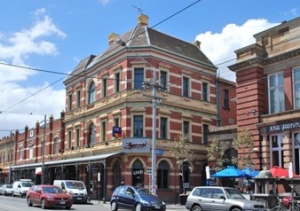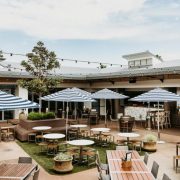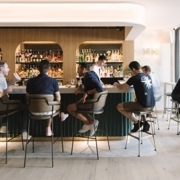HAVE YOU HEARD OF A HOTEL “BOOTS”?
TODAY they are more commonly known as yardmen, or roustabouts, usually blokes employed by a hotel to do odd jobs. Tasks like hosing down the front of the pub in the mornings, gardening, cleaning, and repair jobs in exchange for bed and board, and, in many cases, a cash-in-hand payment. They collected glasses, sometimes jumped behind the bar to pull a beer or two, and were essential in a well-oiled pub.
In Australia they were first referred to as ‘boots’, a term brought from Britain. The word came from, ‘boot boys’, an occupation in the 1830s and 40s requiring young men to clean the boots of hotel guests. Guests would leave their boots outside their room door for the ‘boot boy’ to clean, ready for the next day.
Gradually the duty of the boot boys increased, and as their tasks became more complicated, and as a consequence, their age increased. By the 1850s, the occupation had become simply known as ‘boots’, and their duties included odd-jobs around the hotel.
The earliest reference in Australia to an advertised job as “Hotel Boots” is in September 1853 in Hobart. The publican of the Ship Inn, Mr Anson, advertised for a “boots” for his Hobart pub. There are many references to ‘boots’ in the newspapers of last century.
The Sydney Truth reported on Sunday December 27, 1903:
A boy 17 years of age, named Oscar Owen, employed as ‘boots’ at the Duke of Edinburgh Hotel, Brunswick (now owned by the pubco group), walked in his sleep last night and fell through a window 30 feet on to the asphalt floor at the bottom of a narrow passage, three feet wide, between two sections of the building. He escaped with a few bruises.

The importance of the hotel boots was demonstrated in the South Australian newspaper, Port Pirie Recorder on July 17, 1924:
INCREASED WAGES
As a result of negotiations between Pirie hotel employees and their employers in respect of an application for increased wages, both parties have come to an amicable agreement where by barmen have been granted 5 shillings a week increase, and boots, 10 shillings. Previously Pirie barmen were receiving £4 5 shillings a week with meals on the premises. Hotel boots, who were receiving £2 5 shillings a week, are now earning £2 15 shillings (about the equivalent of $200) with a half-holiday every week. The variation only applies to Pirie hotel employees.
The hotel boots were colourful characters who added a little amusement in the daily tasks involved in running a pub.
As the pages of time turned, the age of Boots continued to climb. The job description of Boots continued for decades, and was still commonly used through the 1950s, and into the 1960s. By the 1970s the job description of Boots had been in the main replaced with yardmen or roustabouts. They were seldom young men, and usually were retired or middle-aged men ‘between jobs’.
This is an excerpt from an article originally appearing at:https://timegents.com/2015/05/11/miraculous-escape-of-a-public-house-boots/











